#Bollywood Songs of 1973
Explore tagged Tumblr posts
Text
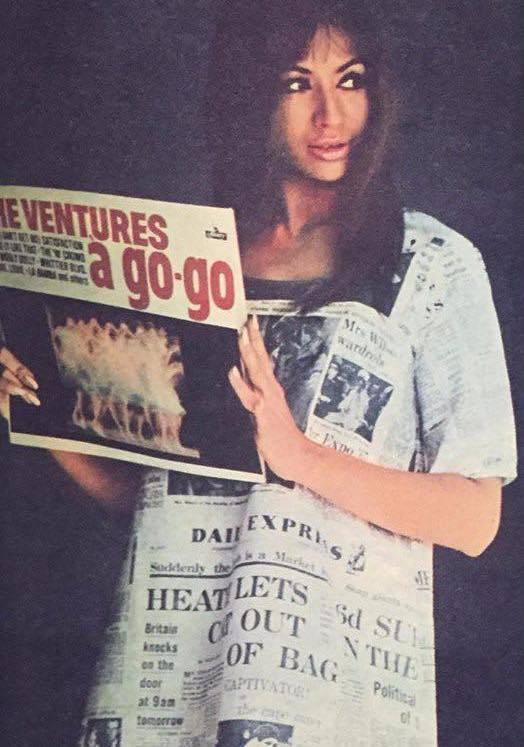
Happy Birthday, #Helen (21/11).
Helen's foray into Bollywood began with a little help from a family friend, actress Cuckoo. Starting with group dance roles in movies like "Shabistan" (1951) and "Awaara" (1951), Helen quickly became a regular in the industry. Her talent shone through, earning her solo dance spots in films such as "Alif Laila" (1954) and "Hoor-e-Arab" (1955). Notably, she also appeared as a street singer in "Mayurpankh" (1954).
A significant breakthrough came in 1958 when Helen was just 19. Her performance in the song "Mera Naam Chin Chin Chu" from the film "Howrah Bridge" captured hearts. Sung by Geeta Dutt, this song marked the start of a series of successful projects for Helen. The 1960s and 1970s saw her rise to fame, with Geeta Dutt lending her voice for many of Helen's performances. During this period, Helen often portrayed characters who would perform a song or dance and then exit the plot, paving the way for the film's lead actress.
By 1969, Helen had become a household name, even gracing the cover of Filmfare Magazine. Another prominent singer, Asha Bhosle, frequently provided playback for Helen's performances, especially during the 1960s and early 1970s. Helen's versatility wasn't just limited to dance; she was nominated for the Filmfare Award for Best Supporting Actress in 1965 for her role in "Gumnaam". Her dramatic roles in "China Town" and "Sachaai" (1969), alongside Shammi Kapoor, were box office hits. She also portrayed a compelling character in "Chhote Sarkar" (1974), co-starring Shammi Kapoor and Sadhana. Helen's hit dance numbers included 'Suku Suku' in "Junglee", 'Yamma Yamma' in "China Town", and several others.
Helen's fame wasn't confined to the Indian cinema; she performed on stages in London, Paris, and Hong Kong. In 1973, "Helen, Queen of the Nautch Girls", a 30-minute documentary by Merchant Ivory Films, highlighted her life and career. This was followed by Jerry Pinto's book "The Life and Times of an H-Bomb" in 2006, which won a National Film Award. Writer Salim Khan played a key role in Helen's career, casting her in several films he co-scripted. Her performance in "Lahu Ke Do Rang" (1979) earned her the Filmfare Award for Best Supporting Actress. In recognition of her contributions, Helen received the Filmfare Lifetime Achievement Award in 1999.
Though she officially retired in 1983, Helen made occasional appearances in films like "Khamoshi: The Musical" (1996) and "Mohabbatein" (2000). She also appeared alongside her real-life step-son #SalmanKhan in "Hum Dil De Chuke Sanam" and in "Humko Deewana Kar Gaye" (2006). Her contributions were further acknowledged when she was selected for the Padma Shri in 2009, alongside Aishwarya Rai and Akshay Kumar. Helen also served as a judge in the semifinals and finals of India's 2009 "Dancing Queen" television series.
11 notes
·
View notes
Text
The Iconic Voice of India: A Tribute to Sonu Nigam
India has a rich tradition of music, with countless artists making their mark over the decades. However, few have achieved the level of adoration and acclaim that Sonu Nigam enjoys. Known for his melodious voice and incredible versatility, Sonu Nigam is more than just a singer; he’s a phenomenon who has redefined the standards of playback singing in Bollywood. With a career spanning over three decades, his ability to adapt to different genres and styles has set him apart as one of the most iconic voices of India.
From romantic ballads to high-energy dance numbers, Sonu Nigam’s repertoire is as diverse as it is impressive. He has delivered countless chartbusters, touching the hearts of millions worldwide. Beyond just his music, his journey to success is a tale of hard work, dedication, and sheer passion. Let’s dive deeper into the life and legacy of this musical maestro.
Sonu Nigam’s Early Years and Rise to Fame
Born on July 30, 1973, in Faridabad, Haryana, Sonu Nigam showed signs of musical talent at a very young age. He began performing alongside his father at weddings and local events, showcasing his knack for singing. His family recognized his potential early on and supported him in pursuing his dreams.
Sonu moved to Mumbai, the hub of India’s entertainment industry, as a teenager. Like many aspiring singers, he faced his share of struggles before gaining recognition. His big break came with the hit song “Accha Sila Diya” from the movie Bewafa Sanam in 1995. This was followed by his iconic track “Sandese Aate Hain” from Border in 1997, which became an anthem of patriotism and established him as a leading playback singer.
Over the years, Sonu Nigam became synonymous with versatility. His ability to adapt to different genres, emotions, and musical styles cemented his position as one of India’s most beloved playback singers. To learn more about the milestones of his career, click here.
The Unparalleled Versatility of Sonu Nigam
Sonu Nigam’s voice has graced numerous chartbusters across genres. His ability to convey deep emotions makes him a favorite among music directors and fans alike. Whether it’s the soulful “Abhi Mujh Mein Kahin” from Agneepath or the peppy “Main Hoon Na” title track, Sonu has an unmatched ability to bring life to any song he sings.
Romantic Melodies: Tracks like “Suraj Hua Maddham” and “Tanhayee” showcase his skill in evoking love and longing.
Patriotic Songs: Sonu’s rendition of “Sandese Aate Hain” remains iconic, reflecting his ability to stir deep emotions.
Energetic Numbers: From “Bijuria” to “All Is Well,” Sonu’s energy in upbeat tracks is infectious.
Classical Fusion: His classical training shines in songs like “Raaga Rang” and his renditions in Kaagaz Ke Phool.
This versatility has earned him numerous accolades, including Filmfare Awards, National Awards, and international recognition.
Impact on Indian and Global Music
Sonu Nigam’s influence extends far beyond Bollywood. He has sung in over 20 languages, including Kannada, Bengali, Tamil, and Telugu, showcasing his ability to connect with audiences from diverse cultures. His Kannada hit “Neene Bari Neene” and Telugu track “Idhi Chala Bagundhi” are celebrated even today.
Moreover, Sonu’s collaborations with international artists have brought Indian music to the global stage. From his duet with Britney Spears for “I Wanna Go” to his album Classically Mild, Sonu has proven time and again that music transcends boundaries. His commitment to innovation and artistic growth keeps him relevant in a rapidly evolving industry.
In addition to playback singing, Sonu Nigam has made significant contributions as a live performer. His concerts, whether in India or abroad, are known for their electrifying energy and emotional depth. Audiences are drawn not just to his voice but also to the genuine connection he establishes with them.
A Journey That Inspires Millions
Beyond his musical achievements, Sonu Nigam’s journey is a testament to perseverance and passion. His struggles in the early years, from financial hardships to battling industry competition, mirror the challenges faced by many aspiring artists. Yet, his determination and commitment to his craft never wavered.
Sonu’s philanthropic efforts also deserve mention. Whether it’s supporting underprivileged musicians or contributing to charitable causes, he has consistently used his platform for the greater good. This makes him not just a great artist but also an admirable human being.
For a deeper dive into his incredible career and inspiring journey, visit this insightful feature here.
Conclusion
Sonu Nigam’s legacy is not just defined by the countless hits he has delivered but also by the emotions he has evoked through his music. He has inspired generations of singers and continues to do so with his unparalleled dedication to his craft.
Whether it’s his soulful melodies, high-energy numbers, or impactful live performances, Sonu Nigam’s contribution to the world of music is monumental. His journey from small-town roots to becoming a global icon is a reminder of the power of dreams and determination.
Related Articles:
For further reading, explore these related articles:
Karan Aujla: The Rise of a Punjabi Pop Superstar
Shankar-Ehsaan-Loy: The Bollywood Trio Shaping Modern Indian Music
Anu Malik: A Legendary Journey in the Indian Music Industry
Kailash Kher: The Voice of India’s Soul
For additional resources on music marketing and distribution, visit DMT Records Private Limited.
0 notes
Text
Exploring Himesh Reshammiya’s Versatility: From Music to Acting
Himesh Reshammiya is a name synonymous with innovation and success in Bollywood’s music industry. From crafting soulful melodies to delivering energetic chartbusters, Himesh has carved a niche for himself as one of India’s most versatile and enduring music personalities. His journey from humble beginnings to becoming a celebrated music director, playback singer, and actor is nothing short of inspirational.
Introduction
Born on July 23, 1973, in Mumbai, Himesh Reshammiya was introduced to music at a young age by his father, Vipin Reshammiya, a noted music composer. His childhood was steeped in melodies, setting the stage for his eventual rise in the Bollywood music industry. However, his journey to fame was not without challenges. From early struggles to becoming a household name, Himesh’s story exemplifies perseverance and passion.
Early Beginnings and Musical Foundation
Himesh Reshammiya’s initial foray into the entertainment world was not through music but through producing television serials. During the 1990s, he produced popular shows such as Andaz and Amar Prem, which earned him recognition as a creative mind. However, his heart lay in music, and it was only a matter of time before he pursued his true calling.
His first significant break in Bollywood came in 1998 as a music composer for the Salman Khan-starrer Pyaar Kiya To Darna Kya. While the soundtrack featured only two songs by him, his contributions caught the attention of critics and listeners alike. This opportunity marked the beginning of Himesh’s career as a music director, but it was merely a prelude to the success that awaited him.
Breakthrough with ‘Tere Naam’
The year 2003 was a turning point in Himesh’s career. He composed the music for Tere Naam, a film that became a massive hit, largely thanks to its soulful and melancholic soundtrack. Songs like Tumse Milna and Tere Naam resonated deeply with audiences, establishing Himesh as a force to be reckoned with in Bollywood. His ability to blend traditional Indian melodies with contemporary sounds set him apart in a competitive industry.
The success of Tere Naam catapulted Himesh to fame, earning him several accolades and making him one of the most sought-after music directors in Bollywood. It was the first of many milestones in his illustrious career.
Revolutionizing Bollywood Playback Singing
In 2005, Himesh Reshammiya transitioned from being a music director to a playback singer, a move that would redefine his career. His debut song, Aashiq Banaya Aapne, took the music industry by storm. The song’s unique nasal tone and catchy rhythm were initially polarizing but quickly gained popularity. Audiences embraced his distinctive singing style, turning it into a trend.
Following the success of Aashiq Banaya Aapne, Himesh delivered a series of hits, including Jhalak Dikhlaja, Tera Suroor, and Zara Jhoom Jhoom. Each track showcased his ability to connect with listeners on an emotional level, further solidifying his position in Bollywood. His voice, once considered unconventional, became a defining characteristic of his music.
Becoming a Bollywood Brand
Himesh’s fame transcended his music, and he soon became a recognizable face in Bollywood. In 2007, he ventured into acting with the film Aap Kaa Surroor: The Real Love Story. While the film received mixed reviews, it was a commercial success, largely driven by its music. Songs like Tera Mera Milna and Tanhaiyaan became instant hits, adding to Himesh’s growing list of accolades.
Despite criticism of his acting skills, Himesh continued to appear in films, showcasing his determination to explore new creative avenues. Over time, his ability to balance acting, composing, and singing made him a true Bollywood icon.
Continued Success and Recent Innovations
Over the years, Himesh Reshammiya has consistently evolved, embracing new trends while staying true to his unique style. In 2021, he launched his music label, Himesh Reshammiya Melodies, signaling a new chapter in his career. Through this platform, he introduced albums like Surroor 2021 and Moods with Melodies, collaborating with emerging artists and showcasing his commitment to nurturing new talent.
Tracks from his recent projects, such as Tere Bagairr and Dagaa, have garnered millions of views, proving that Himesh’s music continues to resonate with audiences. His ability to innovate while maintaining the emotional depth of his compositions has cemented his legacy as a Bollywood music icon.
Impact on Bollywood Music
Himesh Reshammiya’s contributions to Bollywood music extend beyond his own work. His success has inspired a generation of musicians and singers to experiment with their craft. By introducing unconventional singing styles and blending diverse musical elements, he has pushed the boundaries of Bollywood music.
Moreover, his journey highlights the importance of perseverance and adaptability in the entertainment industry. Whether it’s creating music, singing, or acting, Himesh has consistently reinvented himself, setting an example for aspiring artists.
Conclusion
Himesh Reshammiya rise in Bollywood is a testament to his talent, hard work, and ability to connect with audiences. From composing iconic soundtracks to becoming a celebrated playback singer and actor, his journey is marked by numerous achievements. Today, he stands as a symbol of versatility and resilience in the Indian music industry.
As Himesh continues to explore new horizons, his music remains a source of joy and inspiration for fans across the globe. His legacy is not just defined by his chart-topping hits but also by his ability to evolve with time, ensuring his relevance in an ever-changing industry.
Do you have a favorite Himesh Reshammiya song or album? Share your thoughts in the comments below! Don’t forget to explore his latest tracks on Himesh Reshammiya Melodies and stay updated with his upcoming projects by following him on social media. Let’s celebrate the music and magic of Himesh Reshammiya together!
0 notes
Text
Exploring the Evolution of Desi Cinema: A Global Phenomenon

Desi cinema, a vibrant and multifaceted domain, refers to the film industries of South Asia, primarily those from India, Pakistan, Bangladesh, Nepal, Sri Lanka, and Bhutan. But when most people mention "Desi cinema," they often mean Bollywood—India's Hindi-language film industry. However, to focus solely on Bollywood is to miss the rich diversity of cinematic traditions that have emerged from this culturally and geographically varied region.
This blog post aims to explore the evolution of desicinema, its global influence, and how it has transitioned from regional storytelling to a powerful force on the global entertainment stage.
The Roots: Traditional Storytelling and Early Cinema
Before the advent of cinema, storytelling in South Asia was primarily oral, passed down through generations in the form of folktales, mythological epics, and performances like dance-dramas and theatrical productions. The cultural legacy of these traditional forms heavily influenced the development of cinema in the subcontinent.
The first recorded instance of filmmaking in India can be traced back to the late 19th century. In 1913, Raja Harishchandra, the first full-length feature film by Dadasaheb Phalke, marked the beginning of Indian cinema. It was a silent film that adapted Indian myths and folklore into a visual narrative.
However, the true flowering of Desi cinema began in the 1940s and 1950s, as the rise of regional film industries—like the Tamil film industry (Kollywood), Telugu cinema (Tollywood), and Bengali cinema—gave birth to new filmmaking styles, genres, and storytelling techniques. Directors like Satyajit Ray in Bengal revolutionized Indian cinema with his Apu Trilogy in the 1950s, which focused on humanist themes and portrayed India's socio-cultural realities with sensitivity and depth.
The Golden Age: Bollywood Dominance
By the 1950s and 60s, Bollywood, which had already existed in its early stages since the 1930s, began to establish itself as the dominant force in Indian cinema. Films from this era were marked by larger-than-life stories, elaborate song-and-dance sequences, and strong emotional appeal, which resonated with both rural and urban audiences. Bollywood's penchant for grand romance, family dramas, and escapist fantasies created a unique cinematic language that could transcend linguistic and regional barriers.
Key figures like Raj Kapoor, Guru Dutt, Madhubala, and Meena Kumari became household names, and their films gained a cult following not just in India, but across the globe. In the 1970s and 80s, Bollywood evolved further with stars like Amitabh Bachchan, who became iconic for his roles in action-packed blockbusters like Sholay (1975) and Zanjeer (1973). During this period, the genre of the masala film emerged, blending action, drama, comedy, romance, and music into a single package that catered to a wide audience.
Post-1990s: Globalization and the Rise of NRI Cinema
The 1990s ushered in a new era for desi cinemas with the global expansion of Bollywood films. Economic liberalization in India, combined with the growing influence of the Indian diaspora, transformed the way Desi films were made and consumed. The advent of satellite TV and the internet brought Bollywood films to millions of homes worldwide, from the Middle East to the United States, the United Kingdom, and beyond.
Filmmakers like Yash Chopra, Aditya Chopra, and Karan Johar capitalized on this trend by making films that explored themes of identity, love, and cultural assimilation for the NRI (Non-Resident Indian) audience. Movies like Dilwale Dulhania Le Jayenge (1995), Kabhi Khushi Kabhie Gham (2001), and Kabhi Alvida Naa Kehna (2006) became cultural touchstones, resonating with both Indians living abroad and international audiences who were drawn to the romance and spectacle of Bollywood.
Simultaneously, other regional film industries like Tollywood (Telugu), Kollywood (Tamil), and Mollywood (Malayalam) gained prominence both within India and internationally, producing films with distinct storytelling traditions. For instance, Telugu cinema's Baahubali series (2015-2017) became a global sensation, demonstrating the massive appeal of regional films on the international stage.
Contemporary Desi Cinema: Diversity and Innovation
The 21st century has witnessed an explosion of diversity within Desi cinema. Bollywood continues to dominate, but now it faces competition from other regional industries. Filmmakers are increasingly experimenting with content, blending genres, and telling stories that push boundaries and explore pressing social issues. Films like Gully Boy (2019), Article 15 (2019), Andhadhun (2018), and Dangal (2016) have been successful not only in India but internationally, gaining recognition at film festivals and even securing global distribution.
Bollywood's content has evolved significantly, with greater emphasis on social issues such as gender equality, caste discrimination, and mental health. The emergence of streaming platforms like Netflix, Amazon Prime Video, and Disney+ Hotstar has also had a significant impact, providing a space for films with niche or unconventional themes to find an audience. These platforms have made Desi cinema accessible to a global audience, breaking down geographical boundaries and allowing for more diverse narratives.
Moreover, the success of films from Pakistan like Khuda Kay Liye (2007) and Cake (2018), as well as Sri Lankan cinema's growing presence on the international stage, underscores how Desi cinema is not limited to India but is a broader, regional phenomenon with a distinct voice.
The Global Influence of Desi Cinema
Desi cinema's influence has also gone beyond the screen. The vibrant world of Bollywood music, with its catchy tunes and intricate choreography, has influenced global pop culture. The Bollywood dance style has found its way into international music videos and performances, and major Western artists like Beyoncé and Madonna have incorporated elements of Indian dance and fashion into their works.
Actors like Priyanka Chopra, Irrfan Khan, and Dev Patel have become global stars, representing the growing international appeal of Desi cinema. Bollywood itself has also increasingly embraced Hollywood collaborations, with films like Slumdog Millionaire (2008) and The Lunchbox (2013) gaining worldwide acclaim.
At the same time, Desi cinema has influenced other global film industries. For example, the fast-paced, action-packed style of Bollywood has inspired filmmakers in the Middle East, Africa, and even Latin America. Indian cinema’s emotional depth and dramatic flair have been admired and adopted in various forms across the world.
Conclusion: The Future of Desi Cinema
As Desi cinema continues to evolve, it is embracing an exciting future marked by bold storytelling, technological innovation, and cultural exchange. The proliferation of digital platforms, the success of regional films on the global stage, and the increasing representation of South Asian narratives in mainstream Western media suggest that the world is ready for more of the unique flavor that Desi cinema has to offer.
For audiences, whether they are tuning in from India, Pakistan, the UK, or anywhere else, Desi cinema offers not only entertainment but also an opportunity to engage with a dynamic, diverse, and ever-evolving cultural landscape. It’s no longer just about Bollywood. It's about a global phenomenon with stories that resonate universally while celebrating the distinct cultural identities that make Desi cinema so unique.
So whether you're a fan of the glitz and glamour of Bollywood or a lover of the raw, powerful narratives emerging from regional cinemas, one thing is clear: Desi cinema is here to stay, and its influence will only grow stronger in the years to come.
0 notes
Text
Malaika Arora's Age: A Timeless Beauty

Continually stunning the world with her charm, Malaika Arora is an evergreen grace. As a top star in India's entertainment industry, it's no surprise that her fans and followers are curious about her age and how she maintains her youthful radiance. In this blog, we'll explore Malaika's age, her journey in the industry, and the secrets to her timeless appeal.
A Star is Born
Malaika Arora was born in Bombay, Maharashtra, India, on August 23, 1973. As of now, she is 50 years old. Her journey in the entertainment industry began when she took up her role as a VJ at the young age of 17, and she has since flourished as an actress, model, TV personality, and producer.
Defying Age: The Journey Continues
Malaika's youthful appearance has been a subject of fascination and admiration for many. Known as the queen of sultry songs and dance numbers, she featured in "Chaiyya Chaiyya" when she was only 25 years old Since then, she has maintained an evergreen aura, gracefully transitioning between various roles in her career.
So, what is the secret to Malaika Arora's ageless beauty, you might wonder. Well, Malaika is a fitness enthusiast, and her dedication to a healthy lifestyle and regular workout routine has contributed significantly to her stunning glow. Consistent exercise, a balanced diet, and picking the right skincare regime have all contributed to the undeniable charm she glows with today.
Her age-defying looks convey the message that beauty is timeless when sustained with the right habits and a balanced lifestyle. No matter your age, you can shine as brilliantly as Malaika Arora if you make the necessary changes in your daily routine.
A Celestial Role Model
What truly stands out about Malaika Arora's age is the fact that it reflects her accumulated wisdom, experiences, and the opportunities she has embraced throughout her journey in the entertainment industry. Today, she is not only a household name but also a role model for millions who look up to her for guidance and inspiration.
Malaika Arora's age is a celebration of her unyielding spirit, grit, and finesse, which she continually exudes in her professional and personal life. So, let us all take a moment to admire the phenomenal accomplishments and radiant beauty of this timeless Bollywood diva.
1 note
·
View note
Text
On this day in Wikipedia: Sunday, 26th November
Welcome, добродошли (dobrodošli), välkommen, mirë se vjen 🤗 What does @Wikipedia say about 26th November through the years 🏛️📜🗓️?
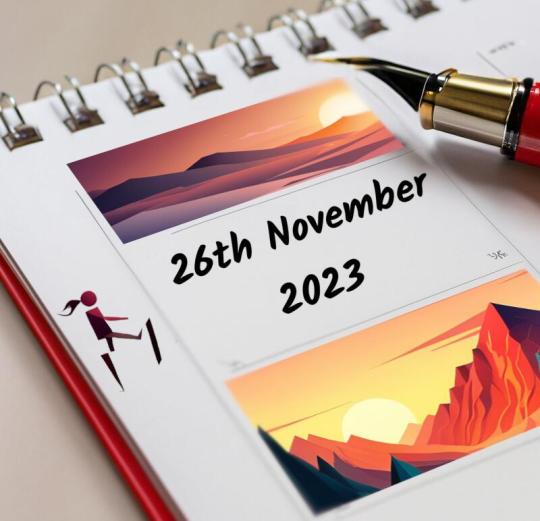
26th November 2022 🗓️ : Death - Vikram Gokhale Vikram Gokhale, Indian actor and director (b. 1945) "Vikram Gokhale (14 November 1945 – 26 November 2022) was an Indian film, television and stage actor, noted for his roles in Marathi theatre, Hindi films and television. He was the son of the Veteran Marathi theatre and film actor, Chandrakant Gokhale.Gokhale made his directorial debut in 2010, with..."
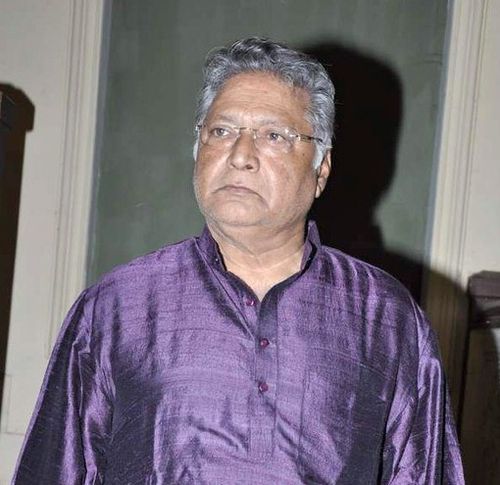
Image licensed under CC BY 3.0? by Bollywood Hungama
26th November 2018 🗓️ : Event - Uncrewed spacecraft The robotic probe Insight lands on Elysium Planitia, Mars. "Uncrewed spacecraft or robotic spacecraft are spacecraft without people on board. Uncrewed spacecraft may have varying levels of autonomy from human input; they may be remote controlled, remote guided or autonomous: they have a pre-programmed list of operations, which they will execute unless..."

Image by NASA
26th November 2013 🗓️ : Death - Tony Musante Tony Musante, American actor and screenwriter (b. 1936) "Anthony Peter Musante Jr. (June 30, 1936 – November 26, 2013) was an American actor, best known for the TV series Toma as Detective David Toma, Nino Schibetta in Oz (1997), and Joe D'Angelo in As the World Turns (2000–2003). In movies, he achieved fame relatively early in his career, starring or..."

Image by ABC Television
26th November 1973 🗓️ : Death - John Rostill John Rostill, English bass player and songwriter (b. 1942) "John Henry Rostill (16 June 1942 – 26 November 1973) was an English musician, bassist and composer, recruited by the Shadows to replace Brian Locking. He wrote many of the songs by the Shadows including "The Rise and Fall of Flingel Bunt" in 1964. He wrote or co-wrote three songs which were massive..."
26th November 1923 🗓️ : Birth - V. K. Murthy V. K. Murthy, Indian cinematographer (d. 2014) "Venkatarama Pandit Krishnamurthy (26 November 1923 – 7 April 2014) known professionally as V. K. Murthy, was an Indian cinematographer. Murthy, a one-time violinist and jailed freedom fighter, was Guru Dutt's regular cameraman on his movies. He provided some of Indian cinema's most notable images in..."
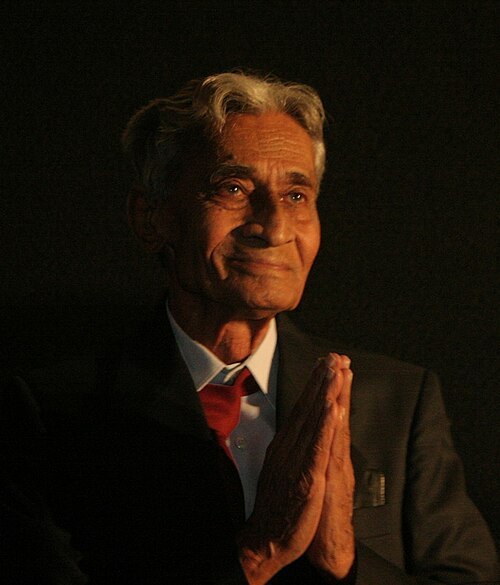
Image by Capitalg
26th November 1817 🗓️ : Birth - Charles Adolphe Wurtz Charles Adolphe Wurtz, Alsatian-French chemist (d. 1884) "Charles Adolphe Wurtz (French: [vyʁts]; 26 November 1817 – 10 May 1884) was an Alsatian French chemist. He is best remembered for his decades-long advocacy for the atomic theory and for ideas about the structures of chemical compounds, against the skeptical opinions of chemists such as Marcellin..."

Image by Unknown authorUnknown author
26th November 🗓️ : Holiday - Christian feast days: November 26 (Eastern Orthodox liturgics) "November 25 - Eastern Orthodox liturgical calendar - November 27 All fixed commemorations below are observed on December 9 by Orthodox Churches on the Old Calendar.For November 26, Orthodox Churches on the Old Calendar commemorate the Saints listed on November 13...."

Image by njk92
0 notes
Text
Pal Pal Dil Ke Paas Piano Notes | Blackmail

Pal Pal Dil Ke Paas Piano Notes
Notes :- Music C4# F4# C5# B4 A4# G4# B4 A4# G4# B4 A4# G4# F4# F4 D4# F4 F4# C4# F4# C5# B4 A4# G4# B4 A4# G4# B4 A4# G4# F4# F4 D4# F4 F4# A4# C5# A4# A4# A4# D4# F4 F4# Pal pal dil ke paas, tum rehti ho D4# F4 F4# A4# G4# G4#, D4# D4# F4 F4 F4# F4# Pal pal dil ke paas, tum rehti ho D4# F4 F4# A4# G4# G4# G4# A4# G4#, D4# D4# F4 F4 F4# F4# Jeevan meethi pyaas, yeh kehti ho, music A4# B4 C5# D5# C5# C5#, G4# G4# A4# A4# B4 A4#, A4# G4# F4# F4 Pal pal dil ke paas tum rehti ho D4# F4 F4# A4# G4# G4# G4# A4# G4#, D4# D4# F4 F4 F4# F4# Har shyam aankhon par, tera aanchal lehraye C4# C4# D4# D4# D4# D4# D4#, D4# A4# A4# G4# G4# F4# F4# D4# F4 D4# C4# Har raat yaadon ki, baarat le aaye C4# C4# C5# C5# C5# C5# D5# C5# B4, B4 A4# A4# G4# G4# G4# B4 B4 A4# A4# Main saans leta hoon, teri khushboo aati hai A4# G4# G4# A4# G4# G4# F4# F4# F4# C4, A4# G4# G4# A4# A4# G4# G4# F4# F4# F4# C4 Ek mehka-mehka sa, paigaam laati hai A4# G4# G4# A4# A4# G4# G4# F4# F4# F4# C4, A4# G4# G4# A4# G4# F4# F4# F4# Meri dil ki dhadkan bhi, tere geet gaati hai C4# C4# C5# C5# C5# C5# D5# C5# B4, B4 A4# A4# G4# G4# G4# B4 B4 A4# A4# G4# Pal pal dil ke paas, tum rehti ho D4# F4 F4# A4# G4# G4# G4# A4# G4#, D4# D4# F4 F4 F4# F4#
About Song :-
The song "Pal Pal Dil Ke Paas" is a classic Hindi song originally featured in the 1973 Bollywood movie "Blackmail." The film was directed by Vijay Anand and starred Dharmendra and Rakhee Gulzar in lead roles. The music for the film was composed by Kalyanji-Anandji, and the lyrics for this particular song were written by Rajendra Krishan. Here are some details about the song "Pal Pal Dil Ke Paas": Song Title: Pal Pal Dil Ke Paas Singers: Kishore Kumar and Lata Mangeshkar Music: Kalyanji-Anandji Lyrics: Rajendra Krishan Film: Blackmail (1973) Actors: Dharmendra, Rakhee Gulzar, Shatrughan Sinha, and others Plot: "Pal Pal Dil Ke Paas" is a romantic song featured in the film and is one of the most iconic and beloved songs in Bollywood history. It beautifully captures the essence of romantic love and the emotions associated with it. The song is known for its melodious composition by Kalyanji-Anandji and the enchanting duet by Kishore Kumar and Lata Mangeshkar. "Pal Pal Dil Ke Paas" has a timeless quality and is considered a classic love song in Indian cinema. "Blackmail" is a thriller-drama film with elements of romance and suspense. The film received critical acclaim for its engaging storyline and memorable music. The song "Pal Pal Dil Ke Paas" has been an evergreen favorite among fans of Bollywood music and is often played on various romantic occasions. Its enduring popularity has led to several cover versions and adaptations over the years. The song remains a timeless classic and a testament to the musical excellence of Kishore Kumar, Lata Mangeshkar, and the composers. Read the full article
0 notes
Text
From `Mere Sapno Ki Rani` to `Roop Tera Mastana`: Exploring Kishore Kumar And Rajesh Khanna`s Greatest Hits
Get ready to take a nostalgic trip down memory lane as we explore the greatest hits of two legends who ruled the hearts of millions in the 70s – Kishore Kumar and Rajesh Khanna. From the soulful “Mere Sapno Ki Rani” to the groovy “Roop Tera Mastana”, their music has stood the test of time and continues to captivate audiences even today. Join us on this musical journey as we celebrate their timeless melodies, unforgettable lyrics, and unparalleled chemistry that made them an inseparable duo in Bollywood history.
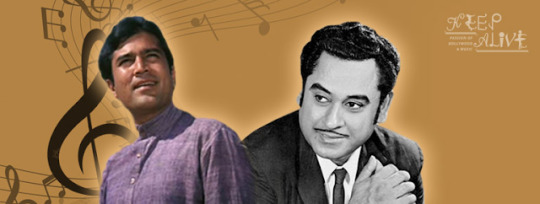
Introduction Kishore Kumar and Rajesh Khanna were two of the most popular actors and singers of Indian cinema during the 1970s. They worked together on numerous films and songs, many of which became huge hits. In this article, we’ll explore some of their greatest hits, from the classic “Mere Sapno Ki Rani” to the more recent “Roop Tera Mastana”. Kishore Kumar was known for his unique voice and style of singing, which was often imitated by other singers. He also had a great range, being able to sing both fast paced songs and slower ballads. Rajesh Khanna, on the other hand,was known for his good looks and charm, which helped him become one of the most popular actors of his time. Together, these two created some of the most iconic songs in Indian cinema. So let’s take a look at some of their greatest hits!
Kishore Kumar – The Melodious Singer and Music Composer Kishore Kumar was a singer and music composer who was popular in the 1950s and 1960s. He is known for his melodious voice and for his ability to compose catchy tunes. Some of his most popular songs include “Mere Sapno Ki Rani”, “Roop Tera Mastana” and “Pyaar Deewana Hota Hai”. Kumar was born in Kolkata, India, on 4 August1929. His father, Kunjalal Ganguly, was a lawyer and his mother, Gouri Devi, was a housewife. Kunjalal was also a singer and often sang at events and weddings. Gouri Devi would often accompany him on the harmonium. Kumar’s elder brother, Ashok Kumar, was an actor who later became a film director. ‘Kishore Kumar’ and started his cinema career as a chorus singer at Bombay Talkies, where his brother worked. Music director Khemchand Prakash gave Kumar a chance to sing “Marne Ki Duayen Kyon Mangu” for the film Ziddi (1948). After this, Kumar was offered many other assignments, but he was not very serious about a film career. In 1949, he settled in Bombay. Apart from being a playback singer, Kumar was also an accomplished music composer. He composed several songs for films and albums throughout his career. Some of his famous compositions include “Haal Kaisa Hai Janaab Ka”, “Ek Ladki Bheegi Bhagi Si”, and the evergreen classic, “Aane Wala Pal”. Kumar was also an actor, appearing in some Hindi films between 1949 and 1967. Some of his most notable roles were in the films “Chalti Ka Naam Gaadi” (1958), “Door Gagan Ki Chaon Mein” (1964) and “Half Ticket” (1962).
Rajesh Khanna – Bollywood’s First Superstar Rajesh Khanna was born Jatin Khanna on December 29, 1942 in Amritsar, India. Rajesh Khanna’s career in the Hindi film industry, also known as Bollywood, spanned over four decades. Khanna is often referred to as “Bollywood’s first superstar” due to his immense popularity during the 1970s. He starred in some of Bollywood’s most iconic films such as Kati Patang (1971), Anand (1971), Amar Prem (1972), and Namak Haraam (1973). Rajesh Khanna passed away on July 18, 2012 at the age of 69.
The Unbeatable Combination of the Two Superstars Kishore Kumar and Rajesh Khanna were two of the biggest superstars of their time. They had a unique chemistry that was unmatched by any other actor-singer duo. Their songs were always a hit with the audience, whether it was a romantic ballad or an upbeat dance number. Some of their most popular songs include “Mere Sapno Ki Rani”, “Roop Tera Mastana”, “Agar Tum Na Hote”, and “Kabhi Kabhi Mere Dil Mein”. Each one of these songs is special in its own way and has been cherished by fans over the years. What made Kishore Kumar and Rajesh Khanna’s partnership so special was the fact that they brought out the best in each other. Kishore Kumar’s playful personality complemented Rajesh Khanna’s intensity perfectly. Together, they created some truly magical moments on screen that are still remembered fondly by fans today.
Greatest Hits from Kishore & Rajesh Kishore Kumar and Rajesh Khanna were two of the most popular actors and singers of their time. They collaborated on many hit songs that are still loved today. Here are some of their greatest hits: “Mere Sapno Ki Rani”: This song is from the film “Aradhana” and is one of Rajesh Khanna’s most famous songs. The song is a romantic ballad that expresses the protagonist’s love and admiration for his dream girl, whom he has not yet met. He describes her as the queen of his dreams and expresses his longing to make her his own. The song has become an iconic representation of Rajesh Khanna’s charisma and charm, and Kishore Kumar’s soulful voice adds to its timeless appeal. “Ek Ajnabee Haseena Se”: This song is from the film “Ajnabee” sung by Kishore Kumar. The song is a romantic ballad in which the male protagonist describes his encounter with a mysterious and beautiful stranger who has captured his heart. He expresses his desire to get to know her better and asks for her love and affection. The soft and melodious tune, combined with Kishore Kumar’s soulful voice, makes the song an all-time favorite among Bollywood music fans. “Ye Jo Mohabbat Hai”: This song is from the film “Kati Patang” and was composed by R. D. Burman. It was sung by Kishore Kumar. The soundtrack became as beloved as the film itself, with songs that were to take their place among the classics. The song is also remembered for its iconic music video featuring the lead actor, Rajesh Khanna, who was known for his charming and romantic performances. “Zindagi Ka Safar”: This song is a classic Hindi song from the 1970 Bollywood film “Safar,” featuring a beautiful collaboration between the legendary singer Kishore Kumar and the iconic actor Rajesh Khanna. It is a poignant reflection on the ups and downs of life’s journey. With its beautiful melody and heartfelt lyrics, “Zindagi Ka Safar” is a timeless gem that continues to resonate with audiences today. – Hamen Tumse Pyar Kitna This song is a classic Hindi song from the 1981 Bollywood film “Kudrat” that features the soulful voice of Kishore Kumar and the magnetic charisma of Rajesh Khanna. Kishore Kumar’s emotive rendition and Rajesh Khanna’s captivating on-screen presence have made it a beloved hit that continues to be cherished by Bollywood music lovers.
Rajesh Khanna & Kishore Kumar’s Unbeatable Collaboration Kishore Kumar and Rajesh Khanna were a legendary duo in the Indian film industry during the 1970s. Kishore Kumar was a prolific singer with a unique voice, known for his versatility and ability to convey a wide range of emotions through his singing. Rajesh Khanna, on the other hand, was a charismatic actor who was a heartthrob of the masses, known for his romantic roles and his ability to connect with audiences.Together, Kishore Kumar and Rajesh Khanna created some of the most memorable songs and films of the era. Their collaborations produced a string of superhit films such as “Aradhana,” “Anand,” “Amar Prem,” and “Mere Jeevan Saathi,” among many others. The songs from these films, many of which were sung by Kishore Kumar, continue to be beloved classics that are cherished by music lovers even today. Kishore Kumar’s soulful voice was the perfect complement to Rajesh Khanna’s charming on-screen presence, and the two were able to create an unbeatable combination that captured the hearts of audiences across the country. Their collaborations remain an integral part of the Indian film industry’s legacy and have left an indelible mark on the hearts of generations of fans.
Conclusion
Kishore Kumar and Rajesh Khanna were an unbeatable combination in the 1970s. Their on-screen chemistry was undeniable, and their string of hits together cemented them as one of Bollywood’s most popular pairs. From light-hearted comedies like Chupke Chupke to tearjerkers like Amar Prem, they proved time and again that they had the range to tackle any genre. There will never be another team quite like Kishore Kumar and Rajesh Khanna. Their films defined a generation, and their impact is still felt today
#music#old hindi songs#binaca geetmala#filmfareawards#yesudas song lyrics#binaca geetmala 1960 to 1970#old hindi songs lyrics#binaca geetmala hindi songs#filmfare award winners 1960#aesthetic
0 notes
Text
Anuradha Paudwal Wiki, Biography, Age, Height, Weight, Family, Net Worth
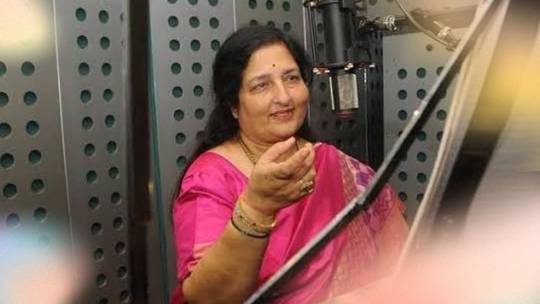
Anuradha Paudwal Wiki: Anuradha Paudwal is an Indian playback singer. Her amazing voice and talent have been heard in Hindi, Marathi, Tamil, Odia, Nepali, Bengali, and Kannada movies since she made her debut with a Sanskrit verse in the 1973 Hindi film Abhiman, which was composed by S. D. Burman. Anuradha Paudwal Wiki Described in the media as one of the most prominent Bhajan singers and also one of the most successful playback singers of the 80s and 90s era of Bollywood, Anuradha is most famously known for her association with music composers Nadeem and Ravan. The two recorded 23 songs together, which were used in three films: Aashiqui, Dil Hai Ke Manta Nahin, and Sadak.

Anuradha Paudwal Wiki Born Alka Nadkarni in a Marathi-speaking family in Karwar, she was married to Arun Paudwal, a music composer, with whom she had a son, Aditya, and a daughter, Kavita, a singer by profession. Tragically, her son Aditya passed away in 2020 due to kidney failure. Anuradha has no plans to retire from her singing career, and her passion for music still thrives.
Anuradha Paudwal Wiki
NameAnuradha PaudwalReal NameAlka NadakarniNicknameT-Series QueenProfessionPlayback SingerAnuradha Paudwal Physical Stats Height (approx.)in centimeters- 165 cm in meters- 1.65 m in feet inches- 5’ 5”Eye ColourDark BrownHair ColourBlackAnuradha Paudwal's Personal LifeDate of Birth27 October 1952Age (as of 2023)70 YearsBirthplaceKarwar, Bombay State (now Karnataka), IndiaZodiac signScorpioNationalityIndianHometownMumbai, IndiaCollegeSt. Xavier's College, Mumbai, IndiaDebutBollywood: A Sanskrit 'Shloka' in the 1973 film Abhiman Marathi Film: Song "Yashoda" (music by Datta Davjekar) Private Album: "Bhav Geeten" (Marathi Album)ReligionHinduismAddressA duplex located in Khar, a posh western Mumbai suburbHobbiesReading, TravellingAwards/Honours1986: Won the Filmfare Award for Best Playback Singer (Female) for the song, 'Mere Man Bajo Mridang' (film, Utsav). 1991: Won two Filmfare Awards for Best Playback Singer (Female) for the songs, 'Nazar Ke Saamne' (film, Aashiqui) and 'Dil Hai Ki Manta Nahin' (film, Dil Hai Ki Manta Nahin). 1993: Won the Filmfare Award for Best Playback Singer (Female) for the song, 'Dhak Dhak Karne Laga' (film, Beta). 2004: Honoured with the 'Mahakaal Award' by the Madhya Pradesh govt. 2010: Honoured with the "Lata Mangeshkar Award." 2011: Honoured with the "Mother Teresa Award." 2013: Mohammed Rafi Award by the Maharashtra Government 2016: Honoured with the D lITT Award. 2017: Honoured with the Padma Shri by the Govt. Of India. 2018: Maharashtra Gaurav Puraskar by the Maharashtra Government 2018: Cultural Ambassador Of Devotional Music by UNOCategory CelebrityAnuradha paudwal's Favorite ThingsFavourite Singer(s)Lata Mangeshkar, Kishore KumarAnuradha Paudwal Husband, FamilyMarital StatusWidowHusband/SpouseLate Arun Paudwal (Music Composer)Marriage DateThe year 1969ChildrenSon- Aditya Paudwal (died on 12 September 2020 at the age of 35) Daughters- Kavita Paudwal & 1 more who died at the age of one month Disclaimer: The above information is for general informational purposes only. All information on the Site is provided in good faith, however, we make no representation or warranty of any kind, express or implied, regarding the accuracy, adequacy, validity, reliability, availability, or completeness of any information on the Site. Read the full article
1 note
·
View note
Text
Chura Liya Hai Tumne Lyrics
Chura Liya Hai Tumne is a timeless classic Hindi song that has been enjoyed by generations of Indians. Originally recorded by Asha Bhosle and Mohammed Rafi in the 1973 Bollywood movie Yaadon Ki Baaraat, the song resonates to this day with its beautiful melodies and captivating lyrics.
https://www.lyricshindisp.in/2023/02/Chura-Liya-Hai-Tumne-Lyrics.html
0 notes
Text
Lyrics Hum Ko To Jaan Se Pyaari Hai-Part 1
Lyrics Hum Ko To Jaan Se Pyaari Hai-Part 1
Hum Ko To Jaan Se Pyaari Hai (Part 1) – Song contents: Lyrics in EnglishHindi LyricsYouTube VideoSong TriviaMore Lyrics in English | Hum Ko To Jaan Se Pyaari Hai-Part 1 | Naina-1973 | Shashi Kapoor, Moushumi Chatterjee | Mohammed Rafi Hum Ko To Jaan SePyaari HainTumhaari AankhenHaye Kajal BhariMadhosh YePyaari AankheHum Ko To Jaan Se……….. Husn KiRaahon MeAaye NaAndheron Ka Nagar Humsafar…
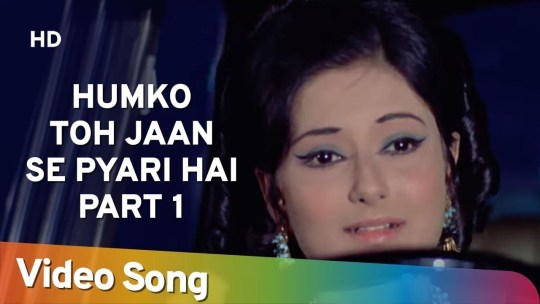
View On WordPress
#A to Z Bollywood Songs#A to Z Hindi Retro Romantic Songs#A to Z Hindi Songs#a to Z Romantic Songs#A to Z Song Lyrics#A to Z Songs#Antakshari Songs from H#Bollywood Songs of 1973#Hindi Song Lyrics starting from H#Hindi Songs of 1973#Lyrics Starting From H#Mohammed Rafi and Hasrat Jaipuri#Mohammed Rafi Songs#Moushumi Chatterjee Songs#Naina (1973) Songs Lyrics#Romantic Songs of Mohammed Rafi#Shankar-Jaikishan and Hasrat Jaipuri#Shankar-Jaikishan and Mohammed Rafi#Shashi Kapoor Songs#Songs Composed by Shankar-Jaikishan#Songs from Naina (1973)#Songs Starting from "Hum"#Songs with Word Hum#Songs written by Hasrat Jaipuri
3 notes
·
View notes
Photo

“Rikshawala” / 1973 / Song booklet featuring Mala Sinha and Randhir Kapoor
#Rikshawala#Mala Sinha#Randhir Kapoor#Old Bollywood#1973#1970s#Indian Cinema#Bollywood2#Bollywood#Vintage Bollywood#song booklets
5 notes
·
View notes
Note
Oh and cursed playlist concept. What kind of music does Gabriel put on at the ashram (Pune or Nevada) to decompress from intense group therapy… (from research I’d say overarching - general vibes: happy, maybe danceable; lyrics: English or Hindi probably :P)
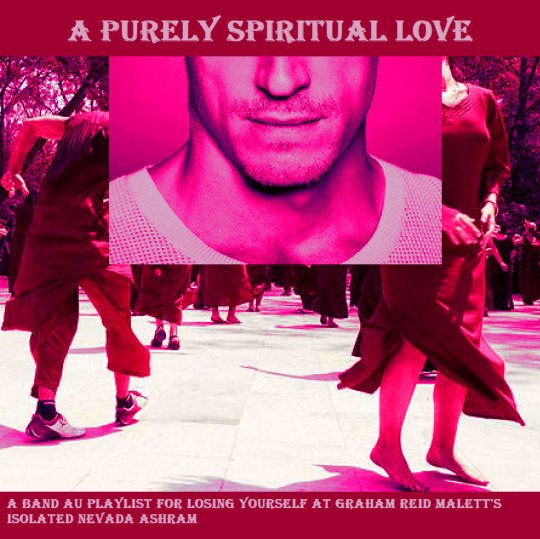
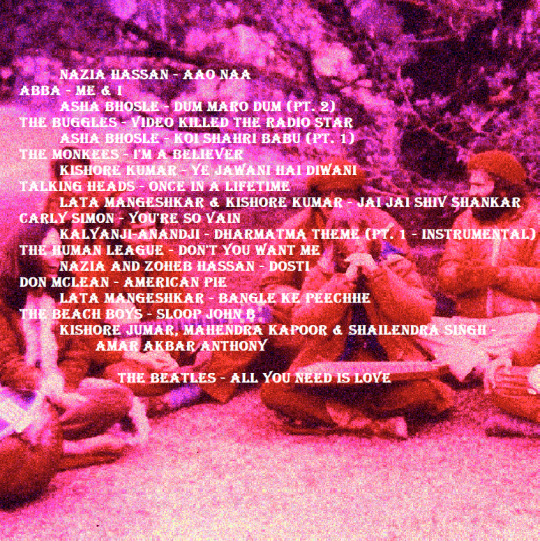
aka the desire to be subtle vs the desire to be funny: FIGHT
A Purely Spiritual Love
A band AU playlist for running away from the world aged nineteen and accidentally falling for your cult leader. Or just for chillin' post dynamic meditation, that's cool too.
Nazia Hassan - Aao Naa
ABBA - Me & I
Asha Bhosle - Dum Maro Dum (pt. 2)
The Buggles - Video Killed the Radio Star
Asha Bhosle - Koi Shahri Babu (pt. 1)
The Monkees - I'm a Believer
Kishore Kumar - Ye Jawani Hai Diwani
Talking Heads - Once in a Lifetime
Lata Mangeshkar & Kishore Kumar - Jai Jai Shiv Shankar
Carly Simon - You're So Vain
Kalyanji-Anandji - Dharmatma Theme (pt. 1 - instrumental)
The Human League - Don't You Want Me
Nazia and Zoheb Hassan - Dosti
Don McLean - American Pie
Lata Mangeshkar - Bangle Ke Peechhe
The Beach Boys - Sloop John B
Kishore Kumar, Mahendra Kapoor & Shailendra Singh - Amar Akbar Anthony
The Beatles - All You Need is Love
Usual deal: explanation below the cut. Album cover featuring Joel Kinnaman's chin.
Caveat and apologies that I don't always have a very detailed explanation for why all the Hindi songs are on here because for some I just couldn't find English lyrics/descriptions of the film they're from, they're just here because they're bops. Caveat and apologies that the English songs are really NOT subtle and I had way too much fun picking them.
Nazia Hassan - Aao Naa Not Hindi, but also no great explanation beyond: what a CRACKING album opener!! Jerott's probably got the cassette and has playlist privileges at Nevada.
ABBA - Me & I Frankly ALL of Super Trouper is on the ashram playlist. The Winner Takes It All? GRM approves! But for supreme trolling-through-playlist purposes, get boogie-ing to this disco track about psychoanalysis: Sometimes I have toyed With ideas that I got from good old Dr. Freud Nothing new of course It may seem to you I try to break through open doors Oh no, oh no I just wanna say a lot of that applies to me 'Cause it's an explanation to my split identity 3) Asha Bhosle - Dum Maro Dum (pt. 2) This was an epic hit, from the film Haré Rama Haré Krishna (1971) which involves, ooh, international bigamy, cults, selling off artifacts to rich Westerners, suicide, hippies beating people up, and all sorts of things that people suspicious of Rajneesh's movement would recognise as threats. I think it would tickle Graham Reid Malett to have people dancing to the big song from a film warning about the dangers of his type. 4) The Buggles - Video Killed the Radio Star Cheesy, a bit sad, a bit sinister even, but everyone can dance along and everyone knows it. 5) Asha Bhosle - Koi Shahri Babu (pt. 1) I'll be honest and say that Bollywood thriller plots are somewhat impenetrable when reduced to short Wikipedia summaries, but this is from Loafer (1973) which seems to be about love across rival gangs and spying on one another. The song is about falling coyly for a guy who gives you a gift. And Asha is the queen, so we put as much Asha on the playlist as we need to. 6) The Monkees - I'm a Believer :))) be happy! Your dynamic meditation has finished and you have taken another step towards enlightenment/entrapment by Graham Reid Malett. 7) Kishore Kumar - Ye Jawani Hai Diwani No explanation, couldn't find the lyrics anywhere BUT what a tune!! Kishore and R.D. Burman, more icons. The film it's from (Jawani Diwani, 1972) has people leaving/becoming estranged from their families for love and intergenerational repeats of that so. A bit of a Jerott vibe. 8) Talking Heads - Once in a Lifetime People from well-to-do background suddenly asking themselves 'how did I get here?' and packing it all in to give their money to the ashram…? 9) Lata Mangeshkar & Kishore Kumar - Jai Jai Shiv Shankar Laughter therapy, praising Shiva (god of meditation, among other things, Rajneesh discoursed on him a lot). And from a film (Aap Ki Kasam, 1974) where paranoia and possessiveness ruins relationships. 10) Carly Simon - You're So Vain Do I think I'm funny? Yes. Yes I do. It's about the death of the ego babe, let go of yourself! But genuinely, you could sway along and dance to this when you were exhausted from meditation! And when Carly Simon finally tells us who (else) it was about you mark my words, Graham Reid Malett will be on the list :P You had me several years ago When I was still quite naive Well, you said that we made such a pretty pair And that you would never leave But you gave away the things you loved And one of them was me 11) Kalyanji-Anandji - Dharmatma Theme (pt. 1 - instrumental) The film (Dharmatma, 1975) is apparently based on the Godfather but set in Afghanistan. So absolutely the kind of thing that would appeal to teenage Jerott, who never knew his grandparents who spent time around the (then) India-Afghanistan border. Plus teenage boys love gangster stories. Plus Jerott doesn't realise the similarities between the ashram set up and that of a mob. 12) The Human League - Don't You Want Me A man who feels entitled to another person because he plucked from obscurity and 'made something of them'? Remind you of anyone? I picked you out, I shook you up and turned you around Turned you into someone new Now five years later on you've got the world at your feet Success has been so easy for you But don't forget, it's me who put you where you are now And I can put you back down too I feel like the background story to this song's release is also relevant: the band hated it and thought it was a filler track and didn't want to release it as a single, the record company forced them to, and it was a huge success. Reminiscent of Francis and GRM's interactions in PiF. 13) Nazia and Zoheb Hassan - Dosti Just another of Jerott's cassettes with good Pakistani disco pop on it! :') 14) Don McLean - American Pie It's just….it's such a GRM/Jerott kind of vibe? The disappointment, grief and sense of loss for something you never quite had, the crushing of hope, the nostalgia for something half-remembered as life-changing, but all sounding so beautiful and dreamy and it kind of cheers everyone up to be able to sing along? The idea of the American Dream as an ideal that can never be lived up to as well, kind of like what Jerott is hoping to find from the ashram vs what he gets. Oh, and there we were, all in one place A generation lost in space With no time left to start again So come on, Jack be nimble, Jack be quick Jack Flash sat on a candlestick 'Cause fire is the devil's only friend Oh, and as I watched him on the stage My hands were clenched in fists of rage No angel born in hell Could break that Satan's spell And as the flames climbed high into the night To light the sacrificial rite I saw Satan laughing with delight The day the music died 15) Lata Mangeshkar - Bangle Ke Peechhe Another I couldn't find the lyrics for, but it's R.D. Burman again and was a massive hit. It's from Samadhi (1972). 16) The Beach Boys - Sloop John B Another one that kind of sounds cheery until you listen to the lyrics when it's actually really miserable! Jerott are you ok? The first mate, he got drunk And broke in the captain's trunk The constable had to come and take him away Sheriff John Stone Why don't you leave me alone? Yeah, yeah Well, I feel so broke up I wanna go home 17) Kishore Jumar, Mahendra Kapoor & Shailendra Singh - Amar Akbar Anthony From a 'masala' film of the same title, about three brothers separated and raised as Hindu/Muslim/Christian, so I figure a good ashram vibe for bringing people together in a synthesis of teachings… Also look out Francis. Look out Jerott. <Two are better than one Three are better than two The bride and the groom are not together There's music but not a wedding procession The bride and the groom are not together There's music but not a wedding procession There's nothing to fear This is a night of union and not of sadness Smile my friends, why do you have such a crying face Smile my friends, why do you have such a crying face When the three of us get together in one place> 18) The Beatles - All You Need is Love Can't have a playlist about a rich white guy exploiting an already exploitative Indian cult to make himself powerful without putting some Beatles on it, right? Sure Graham, 'love'. There's nothing you can do that can't be done Nothing you can sing that can't be sung Nothing you can say, but you can learn how to play the game It's easy Nothing you can make that can't be made No one you can save that can't be saved Nothing you can do, but you can learn how to be you in time It's easy
#playlists: period appropriate#(i've made a mess of the tags sometime because i always forget how to spell his name)#character: jerott blyth#setting: ashram#setting: nevada#setting: pune ashram#pink people#setting: 1980s#character: graham reid malett
6 notes
·
View notes
Text
Narendra Chanchal Bhajans That Captured the Nation’s Heart
Narendra Chanchal is a name synonymous with devotional music in India. Known for his soulful voice, spiritual charisma, and timeless bhajans, he redefined the genre and brought it to the forefront of Indian cultural consciousness. From humble beginnings in Amritsar to becoming a household name, Chanchal’s journey is a testament to dedication, talent, and unwavering faith. This article explores his life, his contributions to devotional music, and his lasting legacy.
Early Life and Influences
Narendra Chanchal was born on October 16, 1940, in Namak Mandi, Amritsar, Punjab. Growing up in a deeply religious environment, Chanchal was exposed to devotional music from an early age. His mother, a devout follower of Mata Vaishno Devi, often sang bhajans at home, creating an atmosphere of spirituality that greatly influenced young Narendra.
Chanchal’s interest in music was evident early on, and his participation in local temple gatherings and Jagratas (night-long devotional singing events) laid the foundation for his future. His unique vocal style and the ability to infuse emotion into every note distinguished him even in his early performances.
Despite the religious overtones of his upbringing, Chanchal was not immune to challenges. He faced criticism from skeptics who doubted his ability to make a career in devotional music. However, his passion for singing and his belief in the divine guided him through these struggles.
The Breakthrough Moment
Narendra Chanchal’s career took a significant turn when he moved to Mumbai to pursue his dreams. In an industry dominated by Bollywood playback singing, breaking into the scene as a devotional singer was no easy task. However, Chanchal’s determination and unique talent set him apart.
His big break came in 1973 when he sang the iconic bhajan “Chalo Bulawa Aaya Hai” in the Bollywood movie Avtaar. The song, a tribute to Mata Vaishno Devi, became an instant hit and catapulted him to fame. This success was not just a personal milestone but also a cultural moment, as it brought devotional music into the mainstream.
Musical Contributions
Over the decades, Narendra Chanchal built an impressive repertoire of bhajans that have become anthems for devotees. His songs are not merely musical compositions; they are heartfelt prayers that resonate deeply with listeners. Some of his most celebrated works include:
“Chalo Bulawa Aaya Hai” — A spiritual journey to the shrine of Mata Vaishno Devi.
“Pyaara Saja Hai Tera Dwar Bhawani” — A melodious homage to the goddess.
“Tera Ram Ji Karenge Bela” — A reminder of unwavering faith in Lord Rama.
What made Chanchal’s music extraordinary was his ability to connect with audiences on a spiritual level. His performances, particularly during Navratri, were electrifying and filled with devotion. He combined traditional bhajan elements with modern arrangements, making his music accessible to younger generations without compromising its spiritual essence.
Recognition and Legacy
Narendra Chanchal’s contributions to devotional music did not go unnoticed. Over his illustrious career, he received numerous awards, including the prestigious Padma Shri in 1974. He also gained recognition on international stages, performing for Indian diasporas and introducing the world to the rich tradition of bhajan music.
However, Chanchal’s legacy extends beyond awards and accolades. He inspired countless artists to explore devotional music as a genre, proving that faith and art could coexist in the commercial music industry. His songs continue to be a source of comfort and inspiration for millions, particularly during festivals and religious events.
Impact on Navratri Celebrations
One of Narendra Chanchal’s most significant contributions was his association with Navratri celebrations. His live performances during the nine-day festival became a hallmark of devotion. For devotees, attending his Jagratas was akin to a spiritual pilgrimage. His music not only set the mood for the festivities but also deepened the spiritual experience for listeners.
The singer’s association with Mata Vaishno Devi was particularly special. He visited the shrine annually and performed there, reinforcing his image as a true devotee and a messenger of faith.
Lessons from His Journey
Narendra Chanchal’s life offers valuable lessons for aspiring musicians and anyone looking to pursue their passion:
Authenticity Matters: Chanchal’s unwavering dedication to devotional music, despite the allure of Bollywood, highlights the importance of staying true to one’s roots.
Perseverance Pays Off: His journey from a small town to national fame underscores the value of hard work and resilience.
Faith Can Be Transformative: Chanchal’s belief in divine guidance not only shaped his career but also inspired his audience to embrace spirituality.
Conclusion
Narendra Chanchal was not just a singer; he was a spiritual phenomenon. His music transcended boundaries, touching the hearts of people from all walks of life. By bringing devotional music into the mainstream, he bridged the gap between tradition and modernity, ensuring that faith remained an integral part of Indian culture.
Even after his passing in January 2021, Chanchal’s voice continues to echo in the hearts of his fans. His songs serve as a reminder of the power of devotion, the beauty of Indian spirituality, and the enduring legacy of a man who dedicated his life to music and faith.
If you haven’t yet explored the magic of Narendra Chanchal’s music, now is the time. Stream his bhajans on Spotify or YouTube, and let his voice guide you on a spiritual journey. Aspiring artists can draw inspiration from his life and take steps toward their own musical dreams by leveraging platforms like Deliver My Tune to share their creations with the world.
0 notes
Text
Asian Horror Cinema Roundup & Thoughts
So, when we set out on this particular film series quest, I had a few limitations to work with:
They had to be movies that we hadn’t already seen, which meant skipping some of the biggest and most influential titles (Ringu, The Grudge, Dark Water, etc etc.)
I wanted as diverse a selection as I could to mix up multiple countries and time periods
The movies all had to be things I could find streaming online, which cut about half of my initial selections out of the running
So, with that in mind, this is....definitely not the most thorough or representative list of films! I make no claims that these are the biggest, best, most important, or anything else. But here is everything we watched!

CHINA/HONG KONG Song at Midnight (1937) Dream Home (2010) Rigor Mortis (2013)
INDIA Bees Saal Baad (1962) Raaz (2002) Bhoot (2003) Kaal (2005) Hisss (2010) Pizza (2012)
JAPAN Kwaidan (1965) Goke, Body Snatcher From Hell (1968) Horrors of Malformed Men (1969) The Vampire Doll (1970) Belladonna of Sadness (1973) Blind Woman's Curse (1970) House (1977) Tetsuo: The Iron Man (1989) Battle Royale (2000) One Missed Call (2003) Uzumaki (2000) Cold Fish (2010) Tag (2015) One Cut of the Dead (2017)
KOREA The Uninvited (2003) A Tale of Two Sisters (2003) Hansel and Gretel (2007) Snowpiercer (2013) Gonjiam: Haunted Asylum (2018)
THAILAND The Park (2003) Shutter (2004) Ladda Land (2011) Krasue: Inhuman Kiss (2019) The Medium (2021)
VIETNAM The Housemaid (2016)
Some overall thoughts:
Japan takes the cake for fucking weird. Which is not a shock to anyone, probably, but it’s very clear that Japan isn’t afraid to get bizarre, and has been doing some super weird shit from the very beginning.
India doesn’t seem to take itself very seriously in the horror film department, lol. Not all of the movies were Bollywood musicals, although a couple were. But even the non-musicals were all pretty silly.
Mainland China doesn’t really make horror movies these days as far as I know but Hong Kong sure does and the ones I’ve seen are all brutal. They don’t seem to mind pushing the envelope there one bit.
South Korea is the same. I have a deep fondness for Korean films, and I think I tend to enjoy them more than Japanese exports because they tend to be more grounded and often politically biting.
Our next batch of horror movies is going to be a catch-up with new releases since we’re a couple years behind at this point. The hashtag for those will be #horror-new-releases so keep an eye out for that in the upcoming weeks.
After we get caught up, I’m not sure what we watch next. We’ve discussed a few possible themes, including:
Remake vs original
Franchise installments
Individual director filmographies
Other foreign countries
Individual monster/mythology trends
There are so many movies out there, and putting them in themes makes it more fun! Change my mind!
33 notes
·
View notes
Text
Shalimar 1978 Songs Pk

Shalimar 1978 Songs Pk Songs
Shalimar 1978 Songs Pk Subban
Shalimar 1978 Songs Pk Song
This will remove all the songs from your queue. Are you sure you want to continue? Clear currently playing song. One Two Cha Cha Cha(From 'Shalimar') Lyrics. Old songs indeed have an unmatchable aura from the rest of the songs. These songs, with the combination of meaningful lyrics and melodious tunes, helped in creating a great hype for their film. While some songs are famous by their title, some are famous by the cast that performs in the songs. SUBSCRIBE for the best Bollywood videos, movies, scenes and songs, all in ONE channel: On the run from the police, S.S. Kumar, a thief, comes across a private invitation to. About Us Shalamar Hospital is committed in the delivery of its tripartite mission of exemplary patient care, high-impact research and education. Over the last 44 years, Shalamar Hospital has evolved into a premier tertiary care medical facility with 500.
Category :Bollywood Songs
A number of songs about turmoil in relationships have been made in Hindi films. It’s not easy to get back to normal after a split with the one you love. This article showcases a detailed perspective of the best Bollywood Breakup songs and Heartbreak songs.
Parting ways with the one you love is never easy. Not every love story has a happy ending. The sentiments associated with a breakup have been expressed colloquially in Hindi films. Since its early days the Hindi film industry has depicted varied emotions centrifugal to lovers parting ways. Emotional turmoil is an aspect that has been thoughtfully captured through songs in Hindi films. Since the black and white era, songs about breakup and heartache have been exceedingly popular. Songs about lovers parting ways are exceedingly popular with Bollywood aficionados. People are able to relate with lyrics in breakup songs, and that’s why these songs are close to the heart of many.
Listeners are able to connect with emotions and feelings conveyed through breakup songs. Heartache and breakups is a bitter slice of reality that is painful, and it’s this pain that is expressed poetically through Bollywood breakup songs. The Hindi film industry is known for its high caliber lyricists. Lyricist’s give new life and meaning to songs with words. Lyrical melodies in Bollywood songs have charmed audiences in different decades. The warmth of emotion that oozes forth in Bollywood breakup songs has mesmerized audiences belonging to different age groups.
Breakup songs and heartbreak songs are popular with both youngsters and the older generation. While youngsters relate to present day songs, the older generation loves listening to sad songs from the decades gone by. The sentiments expressed through breakup songs in Hindi films have touched hearts. Emotive lyrics in breakup songs bring back memories of the past. Listening to songs about breakups or heartbreak help you deal with life as it comes. While opinions differ in regard with whether listening to breakup songs impact a person positively or negatively, the truth of the matter is lyrics in songs about heartbreak can only make you stronger and move forward for a better life.
The lines below showcase a comprehensive list of the best Bollywood breakup songs.
100 Greatest Bollywood Breakup Songs and Heartbreak Songs
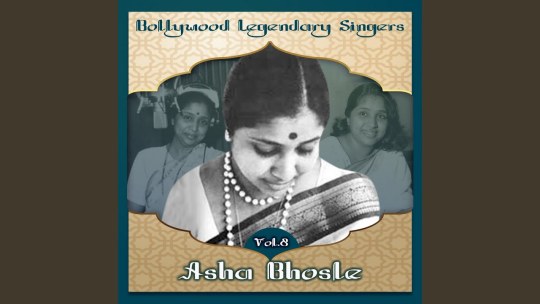
Tadap Tadap Ke- Hum Dil De Chuke Sanam (1999)
Jag Soona Soona Lage- Om Shanti Om (2007)
Tanahayee- Dil Chahta Hai- (2001)
Jeena Yahan Marna Yahan- Mera Naam Joker (1970)
Bin Tere- I Hate Love Stories- (2010)
Yeh Duniya Yeh Mehfil- Heer Ranjha (1970)
Kabira- Yeh Jawaani Hai Deewani- (2013)
Tum hi Ho- Aashiqui 2 (2013)
Saathi Re Tere Bina Bhi Kya Jeena- Muqaddar Ka Sikandar (1978)
Tu Jaane Na- Ajab Prem Ki Ghazab Kahani- (2009)
Jaane Tu Meri Kya Hai- Jaane Tu… Ya Jaane Na (2008)
Agar Tum Saath Ho- Tamasha (2015)
Teri Meri- Bodyguard (2011)
Tujhe Bhula Diya- Anjaana Anjaani- (2010)
Mora Piya- Raajneeti (2010)
Tere Bin- Bas Ek Pal (2006)
Pyaar Hai Ya Sazaa- Salaam-e-Ishq (2006)
Bhula Dena- Aashiqui 2 (2013)
Jab Rulana Hi Tha- Aggar (2007)
Tujhe Yaad Na Meri Aaye- Kuch Kuch Hota Hai (1998)
Pardesi Pardesi Jaana Nahin- Raja Hindustani (1996)
Tujhe Sochta Hoon- Jannat 2 (2012)
Woh Lamhe Woh Baaten- Zaher (2005)
Chaha Hai Tujhko- Mann (1999)
Tune Jo Na Kaha- New York (2009)
Dil Ke Armaan Aanshuo Main Beh Gaye- Nikaah (1982)
Sunn Raha Hai- Aashiqui 2 (2013)
Hasi- Hamari Adhuri Kahani- (2015)
Tere Liye- Veer Zaara (2004)
Zindagi Ka Safar- Safar (1970)
Laal Ishq- Goliyon Ki Rasleela…Ramleela (2013)
Hone So Batuyaan- Fitoor (2016)
Tere Naam- Tere Naam (2003)
Manchala- Hasee Tooh Phasee (2014)
Kaise Main Kahon Tujhse- Rehna Hai Tere Dil Main (2001)
Ae Dil Hai Mushkil- Ae Dil Hai Mushkil (2016)
Ab Tere Bin- Aashiqui (1989)
Lambi Judaai- Hero (1983)
Main Shayar Badnaam- Namak Haram (1973)
Alvida- D- Day (2013)
Main Tenu Samjhawan- Humpty Sharma Ki Dulhania (2014)
Chingari Koi Bhadake- Amar Prem (1971)
Re Piya- Aaja Nachle (2007)
Koi Yeh Kaise Bataye- Arth (1983)
Tere Bina Zindagi Se Koi- Aandhi (1975)
Din Dhal Jaaye Haaye- Guide (1965)
Hum Bekhudi Mein Tumko Pukare- Kala Pani (1958)
Jiye Toh Jiye Kaise- Saajan (1991)
Pyar Manga Hai Tumhi Se- College Girl (1978)
Waqt Ne Kiya Kya Hansi Sitam- (Kaagaz Ke Phool) (1959)
Mera Kuchh Saaman- Ijaazat (1988)
Dooriyan- Love Aaj Kal(2009)
Justjoo Jiski Thi Usko- Umrao Jaan (1981)
Teri Galiyon Mein Na Rakhenge- Hawas (1971)
Poochoo Na Kaise Maine- Meri Surat Teri Aankhen (1963)
Abhi Mujh Mein Kahin- Agneepath (2012)
Laayi Ve Ne Gayi, Tey Nibhayi Vi Na Gayi- Chalte Chalte (2003)
Bhare Naina- Ra. One (2011)
Do Pal- Veer Zaara (2004)
Yun Hasraton Ke Daag- Adalat (1958)
Zindagi Mein Koi Kabhi Aaye Na Rabba- Musafir (2004)
Dil De Diya Hai- Masti (2004)
Priya Priya- Dil (1990)
Toote Huye Khwabon Me- Madhumati (1958)
Hum Bewfa Hargiz Na Thay- Shalimar (1978)
Jiyien Kyun- Dum Maaro Dum (2011)
Aaoge Jab Tum Sajna- Jab We Met (2007)
Teri Yaad Aati Hain- Saudagar (1991)
Jeena Jeena- Badlapur (2015)
Jeeta Tha Jiske Liye- Dilwale (1994)
Dil Mera Churaya Kyon- Akele Hum Akele Tum (1995)
Who Shaam Kuchj Ajeeb Thi- Khamoshi (1969)
Mujhe Teri Mohabbat Ka Sahara- Aap Aye Bahaar Aye (1971)
Tu Pyaar Hain Kisi Aur Ka- Dil Hai Ki Maanta Nahi (1991)
Zindagi Ke Safar Mein Guzar Jaate- Aap Ki Kasam (1974)
Jaane Kahan Gaye Who Din- Mera Naam Joker (1970)
Koi Hota Jisko Apna- Mere Apne (1971)
Kya Hua Tera Wada- Hum Kisise Kam Naheen (1977)
Shikaayat Hain- Jism (2003)
Sach Keh Raha Hai Deewana- Rehnna Hai Tere Dil Mein (2011)
Aur Is Dil Mein Kya Rakha Hai- Imaandaar (1987)
Chod Gaya Balam- Barsaat (1949)
Banake Kyun Bigada Re- Zanjeer (1973)
Chupana Bhi Nahi Aata- Baazigar (1993)
Mere Toote Huye Dil Se- Chhalia (1960)
Mere Dushman Tu Meri Dosti Ko Tarse- Aaye Din Bahaar Ki (1966)
Mere Piya- Tere Mere Sapne (1996)
Toh Phir Aao- Awarapan (2007)
Shisha Ho Ya Dil Ho- Aasha (1980)
Awaarapan Banjarapan- Jism (2003)
Dil Lagane Ki Do Na Saza- Anmol (1993)
Achha Sila Diya Tune Mere Pyaar Ka- Sanam Bewafa (1993)
Yeh Safar- 1942: A Love Story- (1994)
Mera Yaar Mila Dey Saaiyaan- Saathiya (2002)
Koi Jab Tumhara Hriday Tod De- Purab Aur Paschim (1970)
Aye Ajnabi Tu Bhi Kabhi- Dil Se (1998)
Hum Thay Jin Ke Saharay- Safar (1970)
Ab Naam Mohabbat Ke Ilzaam Yeh Aaya Hain- Ghulam (1998)
Tota Tota Sajan Se Kehna- First Love Letter (1991)
Rula Ke Gaya Sapna Mera- Jewal Thief (1967)
Let us know how you like this article. Like it and Rate it below.
60.43K 3
4
Next Post
200 Greatest Hard Rock Love Songs and Rock Ballads
Shalimar 1978 Songs Pk Songs
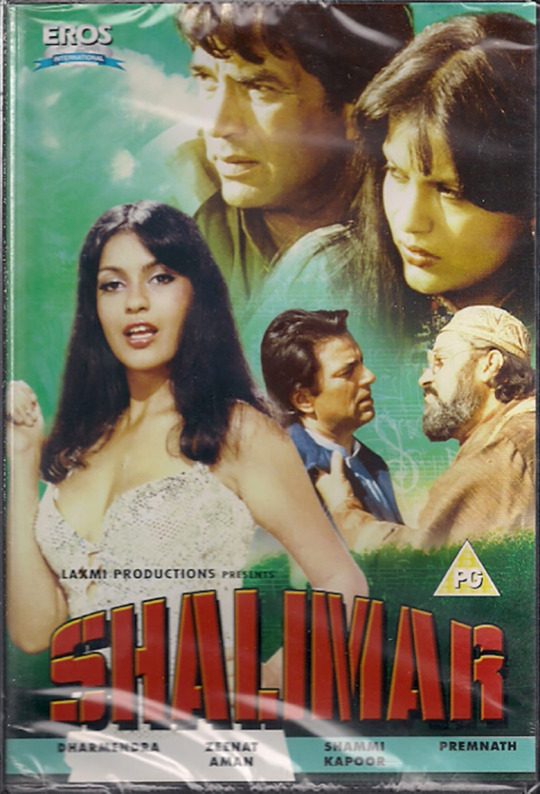
200 Greatest Classic Bollywood Songs
The repertoire of classics in the Hindi film industry is incomparable. This article showcases a list of best classic Bollywood songs..
100 Greatest Bollywood Dance Songs For New Year Parties
The vibe Bollywood music brings onto the dance floor is like no other. The lines below showcase a list of the best Bollywood dance songs for New Year parties.
Shalimar 1978 Songs Pk Subban
Top 100 Bollywood Dance Songs For Freshers’ Parties
Music and dance is the essence of a freshers’ party. Students like to have a good time dancing to the tunes of different songs at a freshers’ bash.
Post Your Comment
tumbou
Oh my God Tujhey Bhula Diya is my all time favourite. It hits the cord straight of my heart. It's lyrics has so much reality in it. Zindagi Kay safar main guzar jaatay is another reality based song that brings tears
reply 0

biju
Music has become an integral part pf our daily life. If you listen music, you would not feel any pain.
Shalimar 1978 Songs Pk Song
reply 0

9 notes
·
View notes